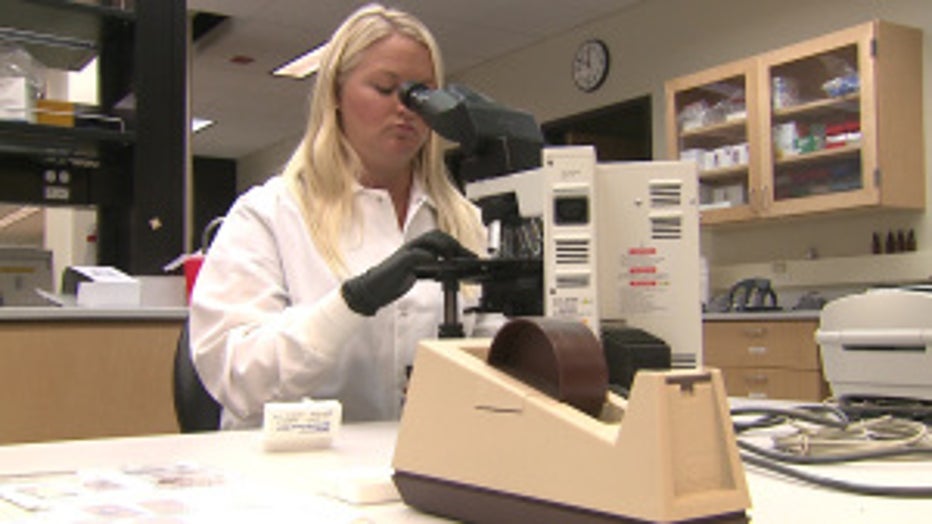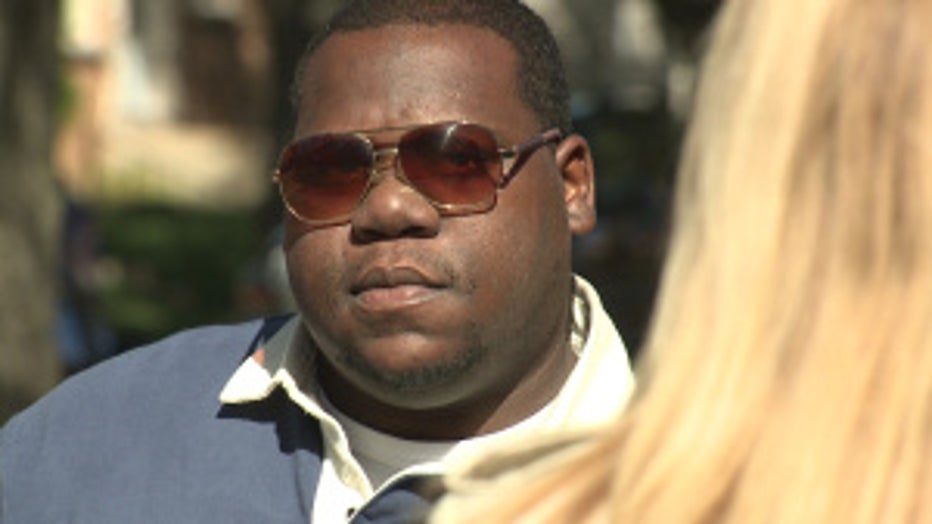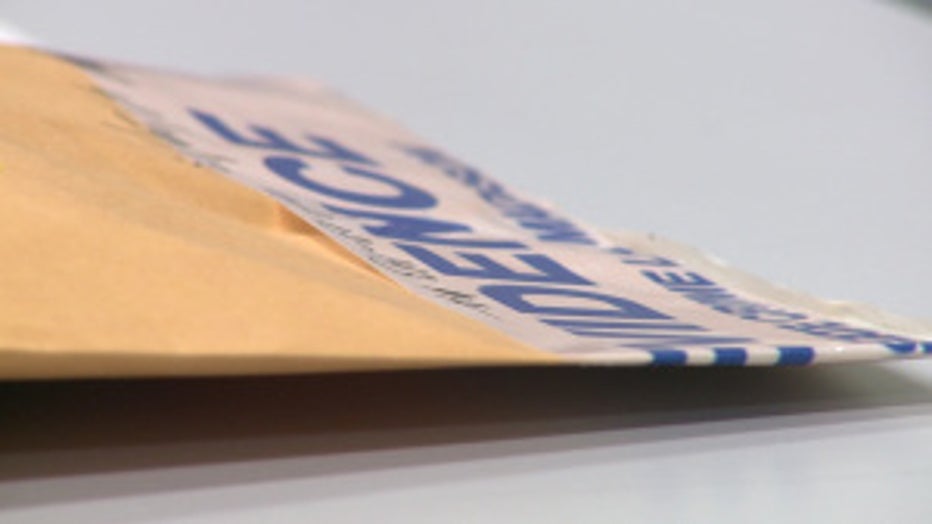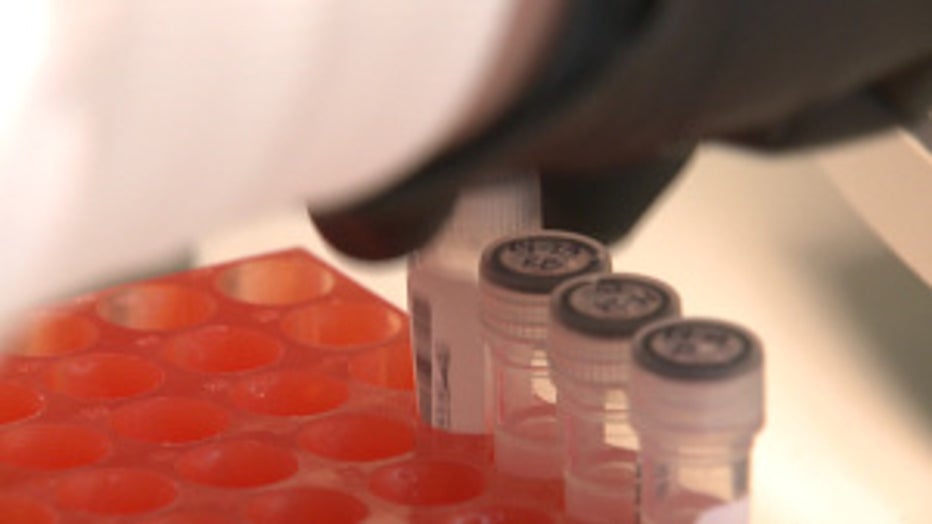Wisconsin now using controversial DNA testing to solve crimes
Wisconsin now using controversial DNA testing to solve crimes
Wisconsin now using controversial DNA testing to solve crimes
MILWAUKEE (WITI) -- For the last two years, a Milwaukee woman says she's been terrified, knowing the man who attacked her has been roaming the streets of Milwaukee.
"

I was sleeping in the bed with my momma for almost 7 months after this happened," she told FOX6 in an exclusive interview.
She says a man forced her into a car and held a knife to her neck while he raped her.
"Literally my life flashed before my eyes."
After the assault, she was able to get a partial license plate and report it the attack to police, who arrested 38-year-old Michael Dixon for the crime.
But then, a jury found him not guilty.
"My family and them didn't believe me," she says.
Dixon claimed the woman was a prostitute who got mad when he couldn't find the money to pay her. The jury bought his story, and he walked.
But then, something else happened.
His brother, Cedric Dixon, got in some trouble.

"I don't think it's right, you know. I don't feel it's right at all," Cedric Dixon says.
Cedric was convicted of felony possession of marijuana, which meant police would take his DNA and put it in a statewide database.
And that's how his brother Michael got caught -- a second time.
"We didn't know at the time that it was a brother. They just said that these are two unique relatives, very close in the genetic pool," says Milwaukee Police Department Lt. Justin Carloni.
It's called Familial DNA testing and Wisconsin is only the seventh state in the country to use it.
"There really was nowhere else to go with this case except for a family search to see if there would be relatives possibly in our databank," says Norman Gahn, Assistant District Attorney for Milwaukee County.
In a sense, Cedric snitched on his brother without even knowing it.
"The fact that they said it was from my DNA that he was caught? Yeah. I don't feel like anyone should have been snooping around my family tree for any reasons," Cedric Dixon says.
His brother, Michael Dixon, now stands accused of raping at least four women -- two adults and two teenage girls. Investigators are calling him a serial rapist who has been attacking women on the streets of Milwaukee for more than a decade.

"The fact that we had a successful first try, which is very unusual, almost unheard of, I think is indicative that we are incredibly lucky or we are doing things right," says Wisconsin Attorney General J.B. Van Hollen.
The way Micheal Dixon was caught wasn't just a modest advancement in technology. Experts say it's a game changer.
Here's how it works: Dixon allegedly raped four women. Evidence was collected in those cases and sent to the crime lab. Scientists were able to figure out that all of the victims were raped by the same person, but they didn't know who that person was.
When they ran the suspect's DNA against the statewide DNA database of convicted offenders, they didn't get a match.
That's where Familial DNA testing comes in. New software allows scientists to run the DNA again, this time looking for potential family members. In other words, detectives are looking for someone who might be related to the "bad guy." And that, they hope, could be the lead they need to crack the case.
In Dixon's case, they got two leads: One for a person in jail and one for Michael Dixon's brother, Cedric.
"These are not your bad guys. Your bad guy could possibly be related to one of these people, but it doesn't mean for sure," says Brian O'Keefe, Administrator

for the Division of Law Enforcement Services for the Wisconsin Department of Justice.
"I think it's going to give us a whole new investigative angle that we never had before," says Lt. Carloni.
The software is only used in the most serious cases. In this case, investigators were able to rule out one of the DNA leads because that person didn't have a male relative who fit the suspect's profile.
When it came to Cedric, investigators say it was pretty easy. After all, Cedric Dixon had a brother who had already been arrested for rape once before.
"My office did push for this. It is something we wanted to do for quite a number of years based upon the success that familial DNA has seen in other states," Van Hollen says.
But for some, that success doesn't come without major privacy concerns. What should the state be allowed to do with our DNA, especially if you aren't the one who committed the crime? If your dad or mom, sister or brother breaks the law -- should your DNA be used to help solve the case? Where will it end?
"We shouldn't have to throw out traditional American values like privacy just because we've got some technology that can do amazing things," says Chris Ahmuty, Executive Director of the Wisconsin ACLU.
But O'Keefe insists privacy isn't an issue.
"We are not out there invading other people's privacy. If you did nothing wrong you have nothing to worry about," he says.
Which is true, sort of. Right now, the state's DNA databank is full of DNA from convicted felons. Next year, though, it will get a whole lot bigger.
People who are convicted of certain misdemeanors will be forced to give up their DNA, too. And if you're arrested for certain violent felonies the crime lab will get your DNA as well -- even if you are never convicted.

Police say it's no different than being fingerprinted, but critics say there's a big difference between an actual fingerprint and a genetic one.
" I could have my DNA in the system all day and they wouldn't bother me because I am not out there committing crimes. It's not going to be at a crime scene," O'Keefe says.
Dixon, whose DNA is still not in the state database, recently wrote a letter to his judge saying he voluntarily gave police his DNA because "he had nothing to hide."
He's back in court later this month.
"He's taking it to trial. He's gonna fight it all the way. He's going to win. He's not a serial rapist by any means. Never," says his brother Cedric.
Familial DNA testing is also being used to help solve two murder cases right now -- one in Milwaukee and one in Madison. So far, this technology is only being used in serial rape cases and homicides. When asked about how much this technology is costing taxpayers, Attorney General Van Hollen said he didn't know. In other states, each search costs as much as $7,000, not including personnel hours and follow up investigations.

